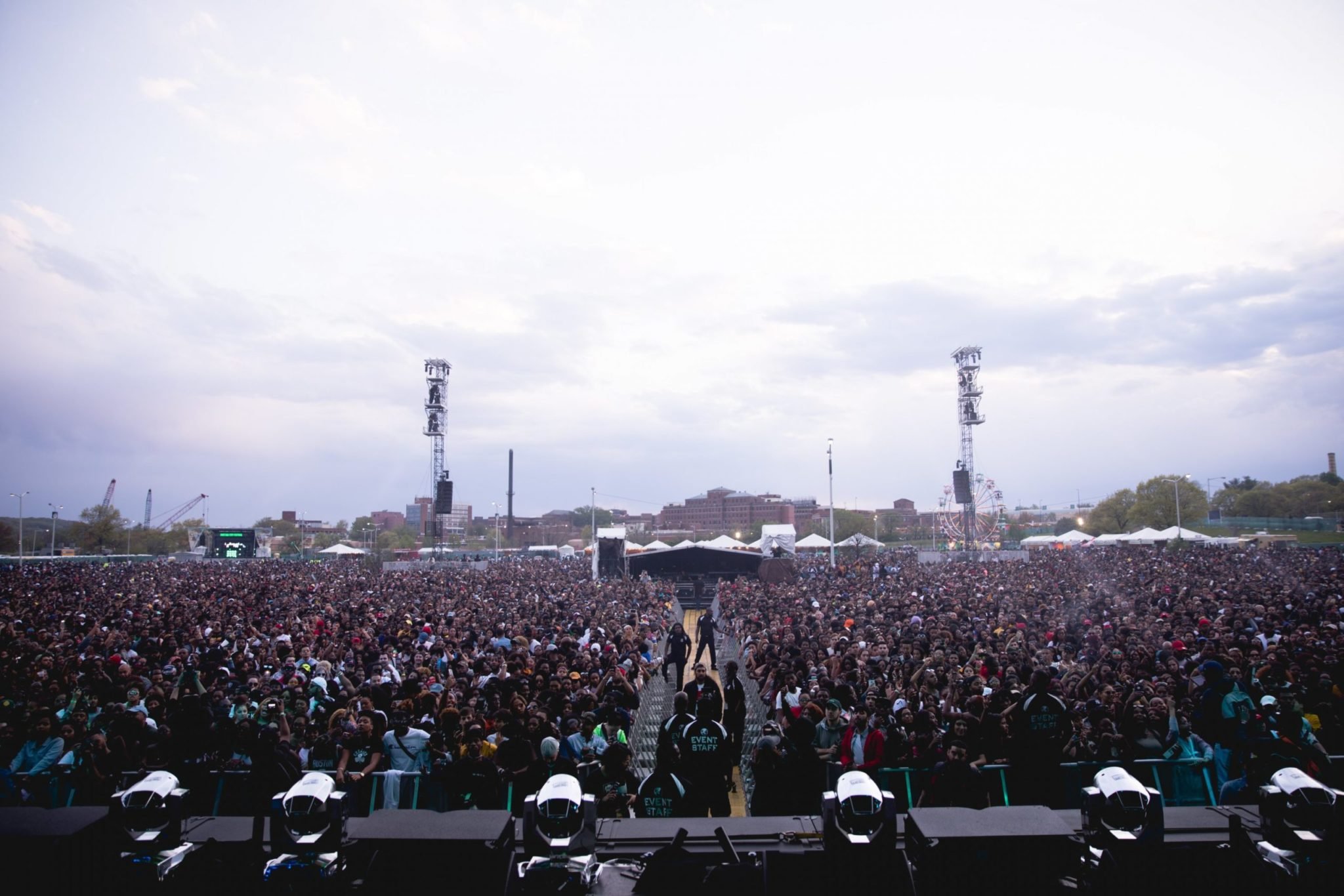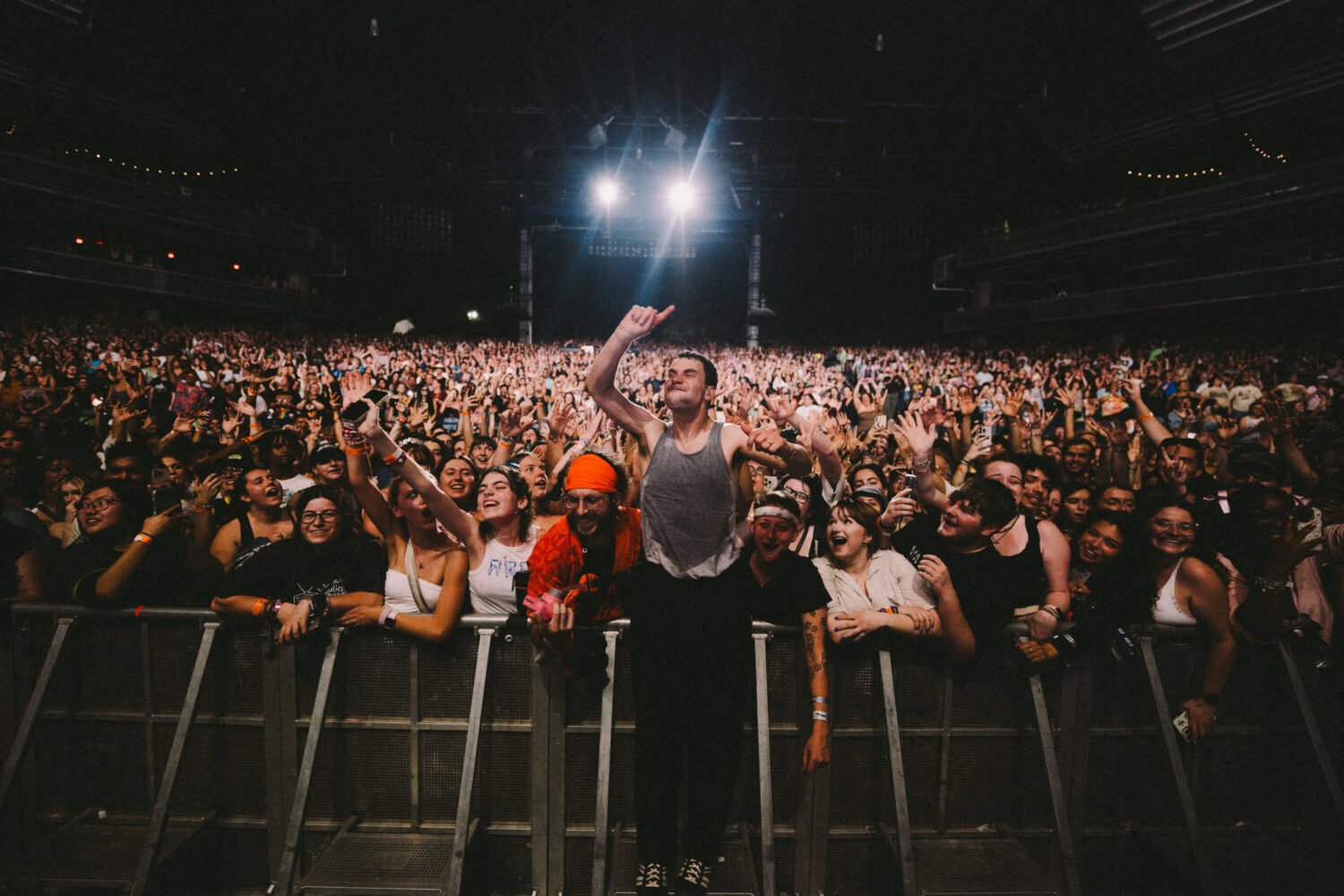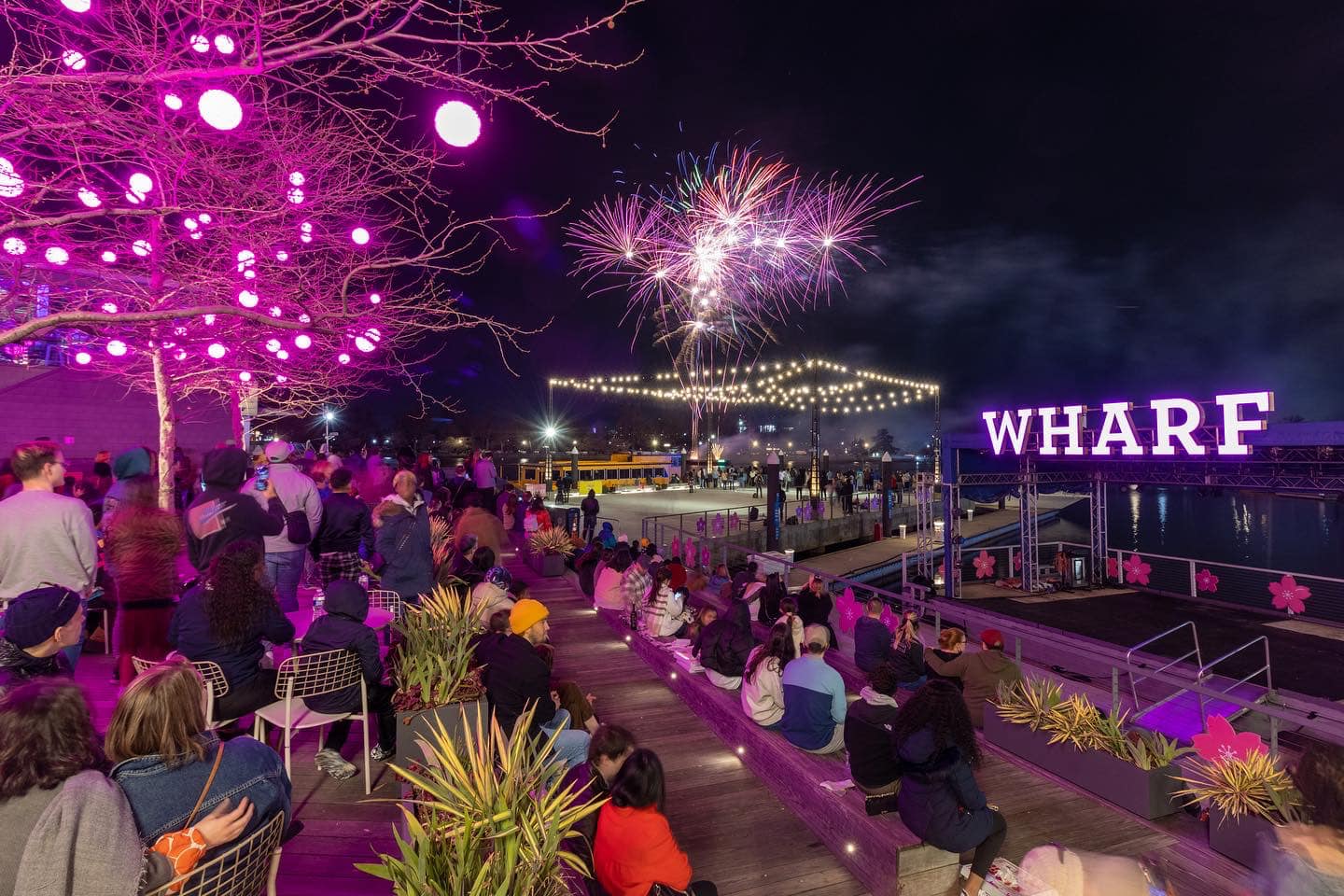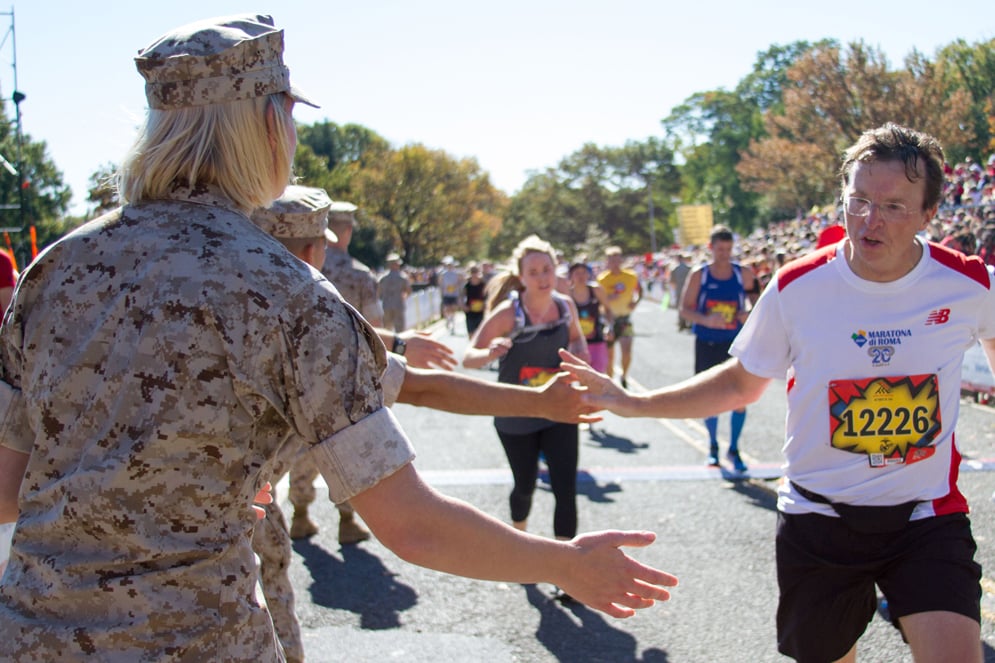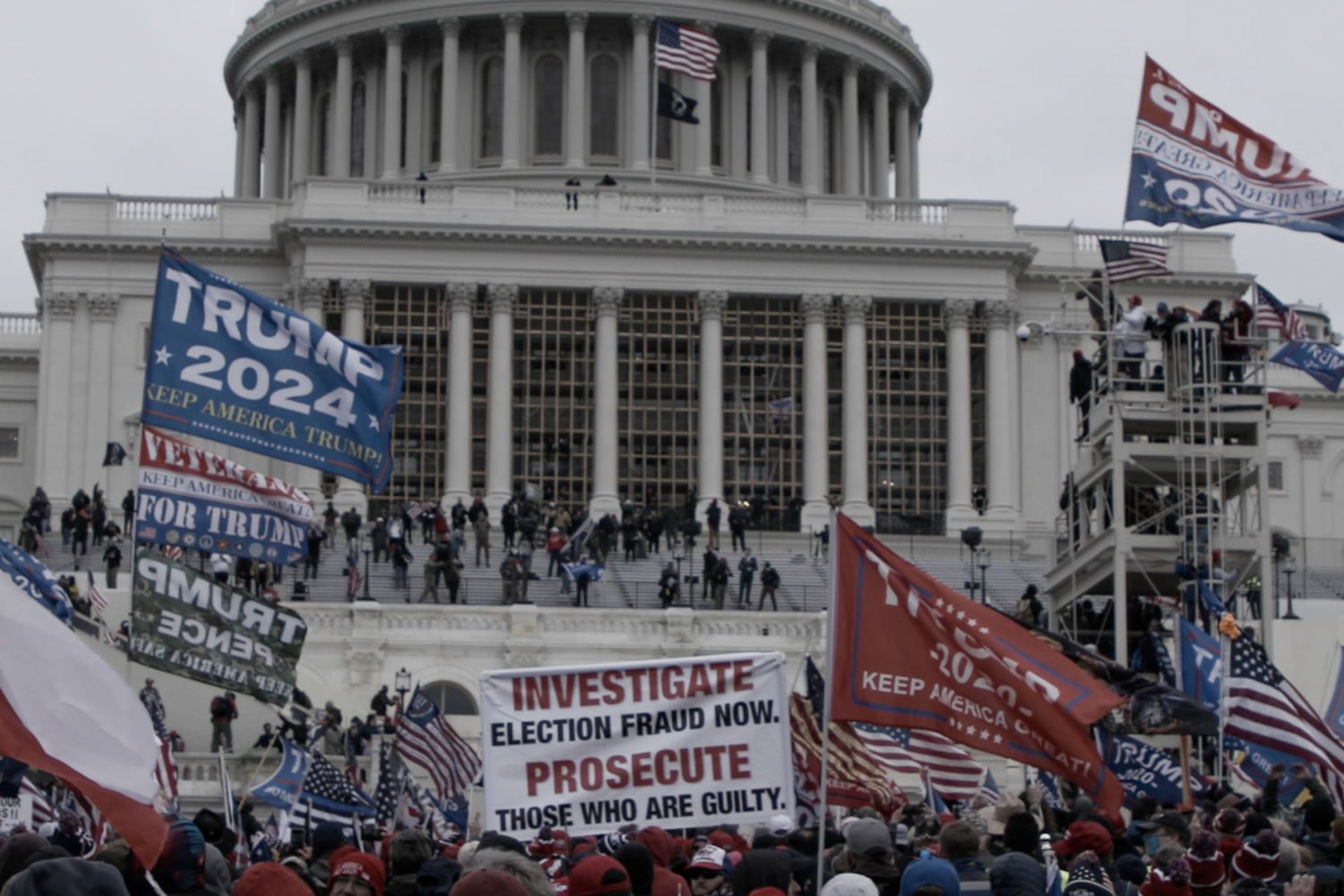Fall is prime outdoor-event season, but this year, it’s also a confusing time to plan or attend the season’s festivals, concerts, and races. Organizers of some major annual events—like the Marine Corps Marathon and Broccoli City Music Festival— have cancelled, citing Covid concerns. Meanwhile, the Rock ’n’ Roll half marathon and All Things Go music festival are still on. If you bought tickets to the DC Mac + Cheese Fest, you’re out of luck—it was postponed again. But huge, sold-out beer festival Snallygaster happened last weekend in downtown DC . What’s with all the inconsistencies?
Some of the cancellations have nothing to do with safety. When it comes to food festivals, many of the same issues snarling restaurant operations—staffing shortages, supply chain disruptions, increasing costs of food and labor—apply to the event circuit. “Imagine that multiple events got postponed due to Covid and then they all want to reschedule. Everyone wants a new date as soon as they can,” says Lisa Shackelford of Drink Eat Relax Events, which is behind the (now twice delayed) mac n’ cheese festival, slated for the Akridge Lot next to Audi Field. “It has been difficult staffing the events, and some of our food vendors have dropped out at the last minute due to their own staffing issues, or can’t get the items that they need.”
Neighborhood Restaurant Group partner and beverage director Greg Engert also experienced planning difficulties when putting on the ninth annual Snallygaster, which drew over 7,000 drinkers to Pennsylvania Avenue, Northwest. Certain beers never arrived, prices for festival items were up as much as 50 percent, and many of the usual participating food vendors backed out.
But Engert says that interest in the festival—both from the public and participating breweries—was stronger than ever: “We didn’t know what to expect when we put tickets on sale, and we sold tickets [twice as fast in the first week of sales] as we did in 2019. We also experienced zero hesitancy on the part of distributors and brewers.”
Another reason event planners choose to move forward: support from DC officials and organizations who are eager to drive dollars back downtown and support their #DCisOpen campaign.
“We worked with the city for months,” Engert says. “It’s always a long process of meetings and hearings and showing safety plans, but they were totally supportive of everything we were doing.”
Deciding what’s safe and what’s not has become an increasingly personal decision—especially if those around you are high-risk or unvaccinated. That’s true for event organizers, too. The huge All Things Go music festival takes place this weekend at outdoor concert venue Merriweather Post Pavilion in Columbia, Maryland—a location that will quadruple the size of the female-forward concert series, but that also requires all entrants to provide vaccination proof (or a negative Covid test within 72 hours).
Meanwhile, the Black-owned “social enterprise” behind Broccoli City Festival used their event—or lack of it—to encourage their fanbase and communities of color to get vaccinated. When the festival, slated for RFK Stadium in Northeast DC, was cancelled less than three weeks out, the organizers cited rising Covid cases in DC and a desire not to put the community at risk.
“We have decided to cancel the Broccoli City Festival 2021 this October to reduce the likelihood of exposure to COVID-19 and do our part to slow the spread in the communities of color we serve,” the organizers said in a statement. They further added: “In the meantime, please continue to take COVID-19 seriously. Get vaccinated, get tested and take care of yourselves (and each other) so that we can all gather next year in 2022 to celebrate 10 years of Broccoli City building better communities, Black change and Black culture.”
When it comes to the race circuit, the Rock n’ Roll Running Series’ half marathon is expected to bring over 16,000 registered participants to DC roadways on November 13. The Florida-based organization, in conjunction with Iron Man Group, is confident about moving forward under new “safe return to running” guidelines.
Some in the running world voiced their frustration that the now-virtual Marine Corps Marathon cancelled its in-person DC event, while big races in New York and Boston have moved forward. Still, organizers pointed to the area’s rising case numbers. They also cited the difficulty of redirecting law enforcement and medical personnel for the roughly 11,000 person race, according to the Washington Post.
“I know some people will point to Boston, New York or Chicago [marathons] or somebody is going to tell me that maybe the Washington Football Team is playing football that day, and that’s decisions those organizations have to make,” race director Rick Nealis told the Post. “The Marine Corps Marathon, part of the United States Marine Corps, we’re held at a higher standard.”

